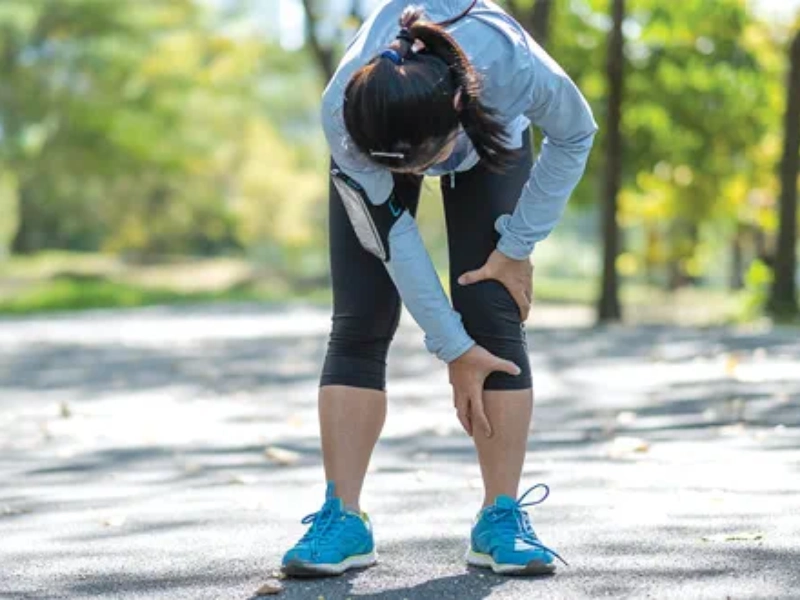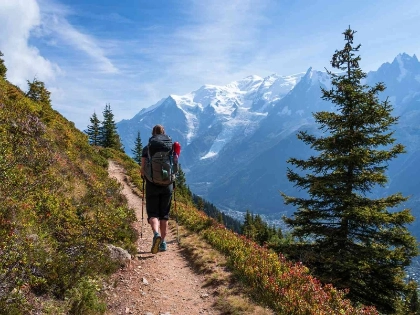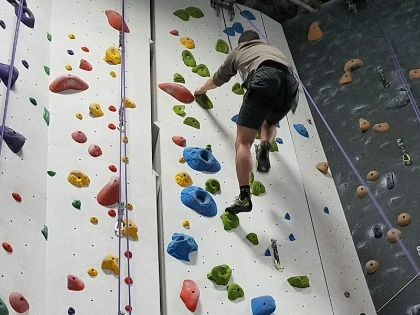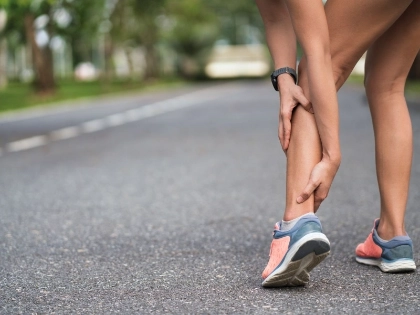Why Does Hiking Make Me Feel Weak?
Hiking is an excellent physical activity. It tests your balancing abilities while engaging the major leg and core muscles. Your brain must work overtime when hiking since the terrain changes. To avoid soreness, damage, and stiffness in the muscles, it's crucial to stretch both before and after trekking. It's also a good idea to drink water, recharge with high-energy snacks, and take regular breaks to take in the beauty of nature.
1. Insufficient Exercise

2. Inadequate Diet
 After a hike, if you feel weak, it's usually because your body didn't get enough nourishment. Having eaten too little, particularly not enough protein and carbs, is a typical cause of post-hiking weariness.
Due to their ease of digestion, carbohydrates are the body's favored energy source when trekking and backpacking. Consuming protein to aid with muscle repair, lipids to maintain energy, and water to stay hydrated are also recommended.
Many hikers claim that they are trekking in order to burn calories, however eating a diet high in junk food over time might cause autoimmune problems and inflammatory illnesses after the trail is crossed. It can also make you feel weak on the trail. Aim to eat a range of complete foods that are low in fats and sweets and high in protein and carbs.
Whereas insufficient B vitamins can cause weariness, insufficient C can cause swelling muscles. Depending on the length and difficulty of the trek, mineral salts like sodium, potassium, and calcium should be replenished by taking electrolyte replacement beverages, supplements, or salty snacks like pretzels, Goldfish, or salted nuts.
After a hike, if you feel weak, it's usually because your body didn't get enough nourishment. Having eaten too little, particularly not enough protein and carbs, is a typical cause of post-hiking weariness.
Due to their ease of digestion, carbohydrates are the body's favored energy source when trekking and backpacking. Consuming protein to aid with muscle repair, lipids to maintain energy, and water to stay hydrated are also recommended.
Many hikers claim that they are trekking in order to burn calories, however eating a diet high in junk food over time might cause autoimmune problems and inflammatory illnesses after the trail is crossed. It can also make you feel weak on the trail. Aim to eat a range of complete foods that are low in fats and sweets and high in protein and carbs.
Whereas insufficient B vitamins can cause weariness, insufficient C can cause swelling muscles. Depending on the length and difficulty of the trek, mineral salts like sodium, potassium, and calcium should be replenished by taking electrolyte replacement beverages, supplements, or salty snacks like pretzels, Goldfish, or salted nuts.
3. Restless Nights
 It's critical to give your body enough time to recuperate from a strenuous trekking day and get ready for rest. The production of hormones that affect feelings of hunger and satiety, energy levels, nutrition absorption, immune function, blood pressure regulation, reproduction, growth and tissue repair, risk of chronic disease, mood, and cognitive ability are just a few of the many vital bodily functions that depend on sleep.
Since FKT hikers push themselves to achieve amazing daily distances, they require a lot of sleep to let their bodies and minds recover. Hikers frequently find themselves collapsing in the mud for as little as an hour in an attempt to reestablish their sleep patterns.
Try to camp for at least the amount of time you want to spend hiking (with breaks) if you want to get better sleep. You can also try consuming things like snacks high in carbohydrates that supply you energy quickly. When you stop hiking for the day, this will make it easier for you to go asleep.
It's critical to give your body enough time to recuperate from a strenuous trekking day and get ready for rest. The production of hormones that affect feelings of hunger and satiety, energy levels, nutrition absorption, immune function, blood pressure regulation, reproduction, growth and tissue repair, risk of chronic disease, mood, and cognitive ability are just a few of the many vital bodily functions that depend on sleep.
Since FKT hikers push themselves to achieve amazing daily distances, they require a lot of sleep to let their bodies and minds recover. Hikers frequently find themselves collapsing in the mud for as little as an hour in an attempt to reestablish their sleep patterns.
Try to camp for at least the amount of time you want to spend hiking (with breaks) if you want to get better sleep. You can also try consuming things like snacks high in carbohydrates that supply you energy quickly. When you stop hiking for the day, this will make it easier for you to go asleep.
4. Injury from Overuse
 Overuse injuries can be a serious issue for hikers of all experience levels. Hiking in a mountainous setting can be uncomfortable since your muscles will tire out before your lungs do when your body is accustomed to walking on flat terrain.
When trekking, it's crucial to slow down, take high-energy snacks, and drink lots of water if you're feeling weak from overuse. Resting is another essential aspect giving your body the time it needs to heal from an overuse injury.
Stretching both before and after your hike is also essential. Proper stretches not only help avoid soreness and strain in your muscles, but they also release happy endorphins into your brain to counteract any residual discomfort. A couple easy stretches are the front leg toe touch and the calf stretch (imagine plantar flexion). It's also crucial to extend your hips well. Physical therapist Alex Lanton adds three additional low- or no-weight exercises to the mix, while personal trainer and hiker Lee Welton has compiled a list of hip exercises suitable for beginners.
Overuse injuries can be a serious issue for hikers of all experience levels. Hiking in a mountainous setting can be uncomfortable since your muscles will tire out before your lungs do when your body is accustomed to walking on flat terrain.
When trekking, it's crucial to slow down, take high-energy snacks, and drink lots of water if you're feeling weak from overuse. Resting is another essential aspect giving your body the time it needs to heal from an overuse injury.
Stretching both before and after your hike is also essential. Proper stretches not only help avoid soreness and strain in your muscles, but they also release happy endorphins into your brain to counteract any residual discomfort. A couple easy stretches are the front leg toe touch and the calf stretch (imagine plantar flexion). It's also crucial to extend your hips well. Physical therapist Alex Lanton adds three additional low- or no-weight exercises to the mix, while personal trainer and hiker Lee Welton has compiled a list of hip exercises suitable for beginners.






